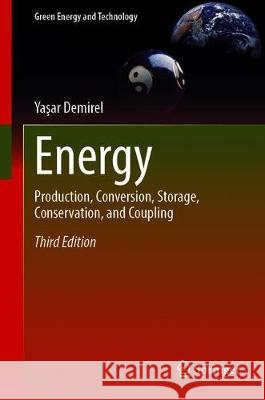Energy: Production, Conversion, Storage, Conservation, and Coupling » książka
topmenu
Energy: Production, Conversion, Storage, Conservation, and Coupling
ISBN-13: 9783030561635 / Angielski / Twarda / 2021 / 650 str.
Energy: Production, Conversion, Storage, Conservation, and Coupling
ISBN-13: 9783030561635 / Angielski / Twarda / 2021 / 650 str.
cena 611,05
(netto: 581,95 VAT: 5%)
Najniższa cena z 30 dni: 462,63
(netto: 581,95 VAT: 5%)
Najniższa cena z 30 dni: 462,63
Termin realizacji zamówienia:
ok. 10-14 dni roboczych.
ok. 10-14 dni roboczych.
Darmowa dostawa!
Kategorie:
Kategorie BISAC:
Wydawca:
Springer
Seria wydawnicza:
Język:
Angielski
ISBN-13:
9783030561635
Rok wydania:
2021
Wydanie:
2021
Numer serii:
000355820
Ilość stron:
650
Waga:
1.10 kg
Wymiary:
23.39 x 15.6 x 3.66
Oprawa:
Twarda
Wolumenów:
01
Dodatkowe informacje:
Wydanie ilustrowane











